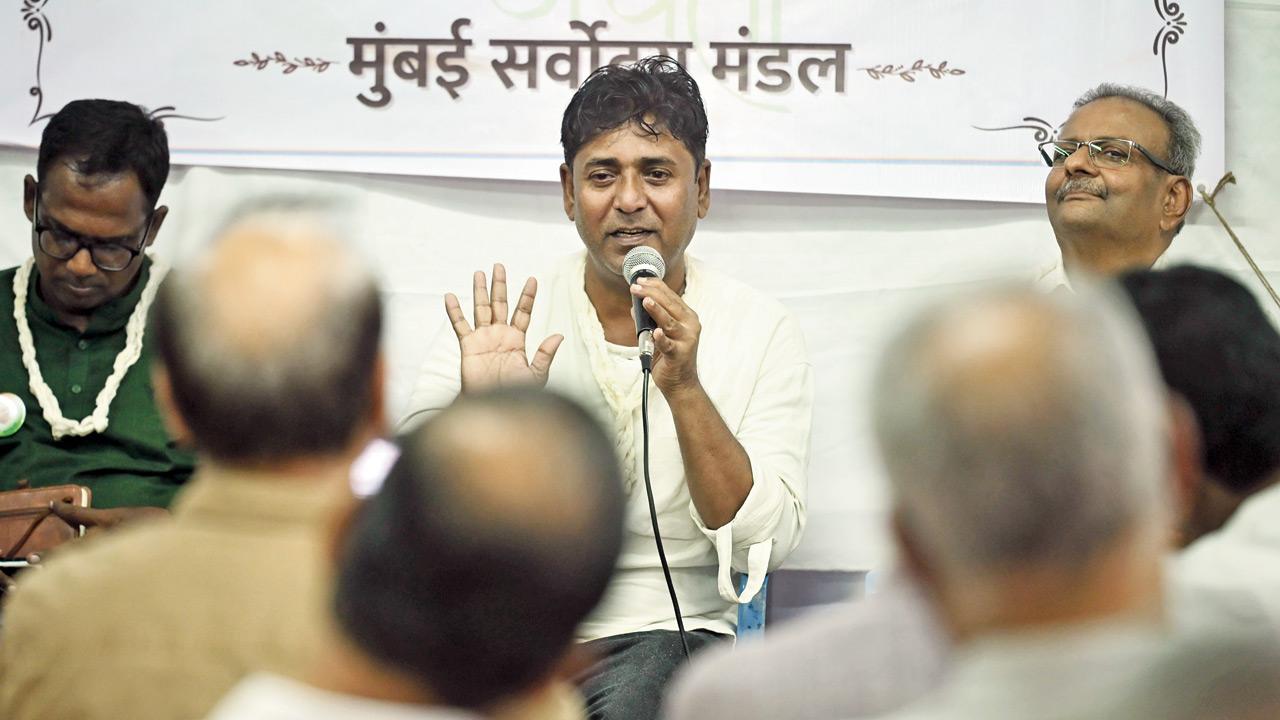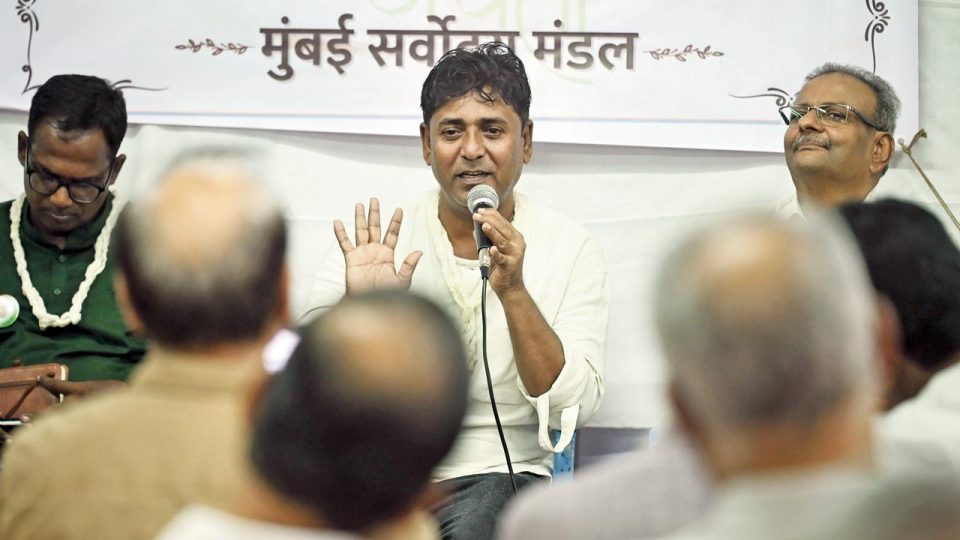
I’d lost the precious diamond from my ring in Gujarat—how could I hope to find it in Kolkata? The trust I had lost in humanity after the 2002 violence was restored to me only when I returned to Gujarat.”
These were the words of Qutbuddin Ansari, who became the symbol of the 2002 Gujarat riots after his haunting image — palms folded, eyes stricken with fear, pleading for mercy — was published around the world. Ansari was speaking at a Gandhi Jayanti event organised by the Mumbai Sarvodaya Mandal, where he was invited as the chief guest for a function titled “Shanti ki Khoj Mein” (In Search of Peace).
That one photograph made life impossible for him in Ahmedabad. With the help of sympathisers and the then CPIM government in West Bengal, he relocated to Kolkata. At the gathering, Ansari explained his eventual decision to return to Ahmedabad, the very city where the horrors had unfolded. “I was given all I needed in Kolkata — a house, a job, a school for my daughter. But I was restless,” he said.
His biggest concern was his five-year-old daughter. “She would sit in my lap when reporters came asking what had happened to me in Gujarat. I feared she would grow up believing her family had to flee her birthplace because of Hindu-Muslim hatred. That thought kept me awake at night. I felt we must return, face life, and live with dignity.”
The family returned, and his daughter rejoined her old school with her Hindu classmates. How difficult this decision must have been came through when Ansari broke down twice while recounting the violence of 2002. “The train burning at Godhra shocked us all. We sympathised with the victims. But then came the killings in Ahmedabad — the way innocent people, even children, were slaughtered…”
He recalled two life-changing encounters. The first was his meeting with Ashok Parmar, the man whose furious face with a saffron headband and sword became the other infamous image of 2002. Arranged by journalist Kaleem Siddiqui, who later wrote Ansari’s biography, the meeting led to unexpected reconciliation. Parmar asked for forgiveness, launched Ansari’s biography in Kerala, and even invited Ansari to inaugurate his shoe shop in Ahmedabad, which he named Ekta Footwear. Ansari, in turn, requested the West Bengal government to help Parmar set up his business.
The second was an invitation from Pune resident Anand Saraf, who reached out with remorse and compassion, assuring Ansari that “not all Hindus were like the ones who attacked you.”


